Nghe An Health strives to enter an era of growth
Entering a new era, an era of national growth, Nghe An Health sector strives to create strong, decisive, drastic, positive movements, efforts, internal strength, and confidence to overcome challenges, and well implement development orientations and goals.... Nghe An Newspaper reporter had an interview with Dr. Le Thi Hoai Chung - Member of the Provincial Party Committee Executive Committee, Director of Nghe An Department of Health about this issue.
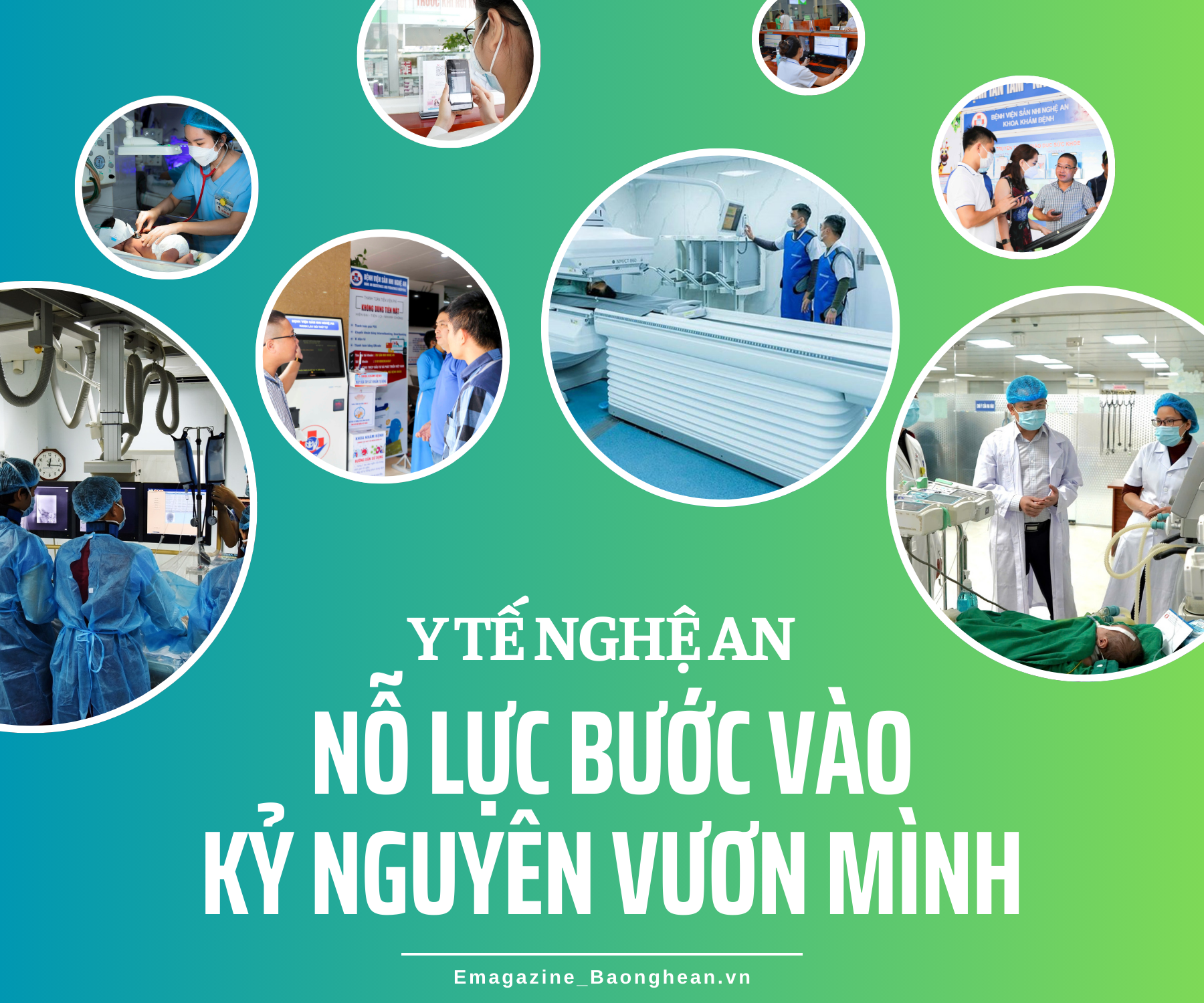
Performed by: Thanh Chung - Technical: Diep Thanh
Publication date: February 27, 2024
Entering a new era, an era of national growth, Nghe An Health sector strives to create strong, decisive, drastic, positive movements, efforts, internal strength, and confidence to overcome challenges, and well implement development orientations and goals.... Nghe An Newspaper reporter had an interview with Dr. Le Thi Hoai Chung - Member of the Provincial Party Committee Executive Committee, Director of the Department of Health on this issue.
PV:At this time, Vietnam has begun to enter a new era, an era of national development. The health sector is also in that process. Could you tell us about the basic foundations of Nghe An health sector when entering the new period?
Dr. Le Thi Hoai Chung:By the end of 2024, Nghe An will have a widespread and diverse health system with many different models and forms of organization. Nghe An's health system includes 3 state management agencies, 46 health service units, 460 commune-level health stations; non-public health has 18 specialized general hospitals, 37 general clinics, 665 specialized clinics, medical services and 3,160 pharmaceutical practice establishments. In addition, the province also has 4 health units under ministries, branches and universities.
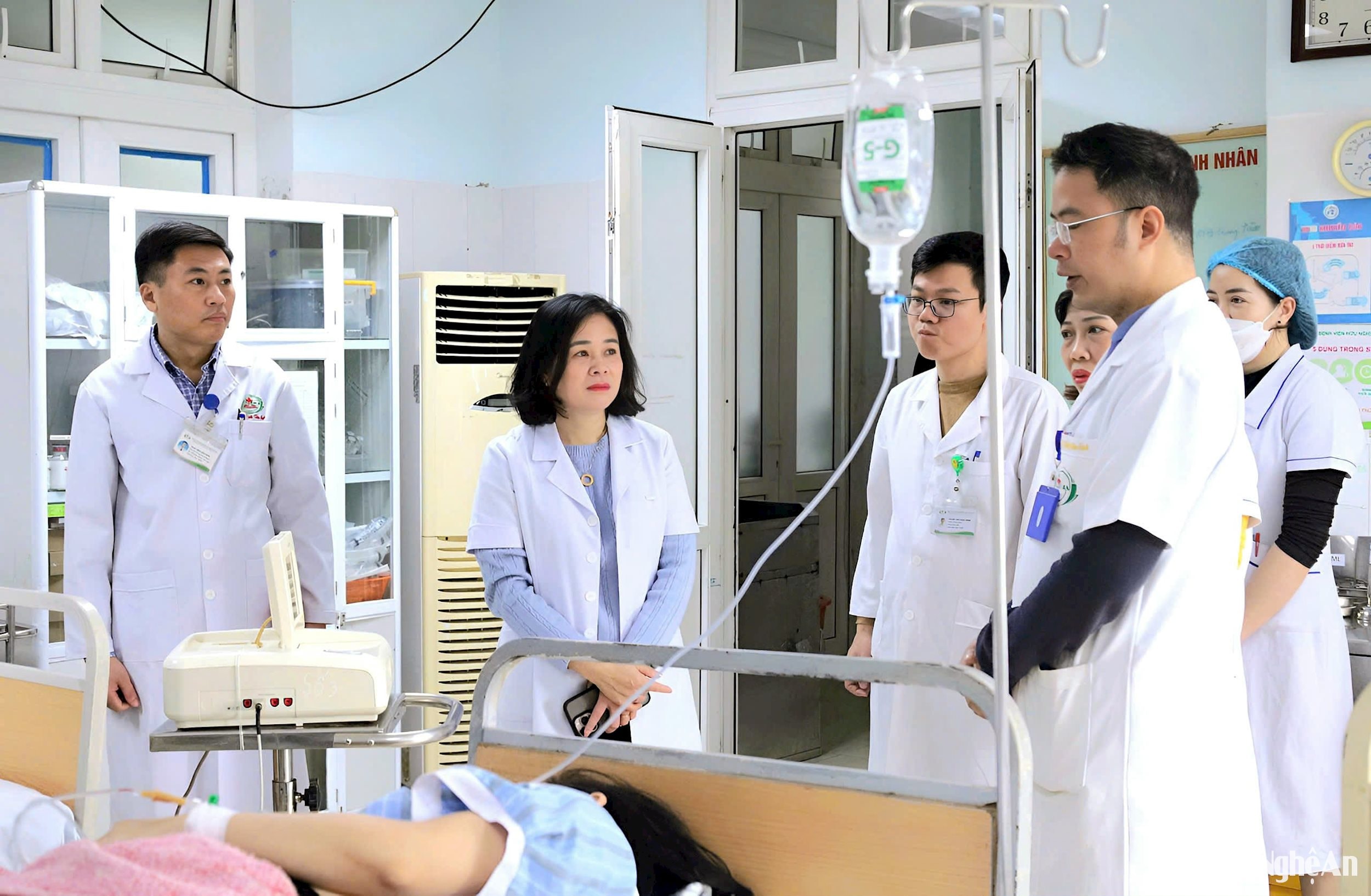
Special class Photo: Thanh Chung
The entire public and non-public health system of the province has 20,386 medical staff. Specifically, public health has 13,842 people, private health has 6,544 people, reaching 57.47 medical staff/10,000 people and 12.9 doctors/10,000 people. Of these, 279 people have doctoral degrees, level 2 specialists; 1,417 people have master's degrees, level 1 specialists; 6,716 people have university degrees; 11,974 people have college degrees or lower.
In the health system, at the district level, there have appeared models of general hospitals and multi-functional medical centers with stable development. At the provincial level, many units have been invested in advanced, synchronous equipment and closed technology. Particularly, Nghe An General Hospital and Nghe An Oncology Hospital have been recognized by the Ministry of Health and assigned the task of being the final line of technical expertise in medical examination and treatment in the North Central region. The whole province has 17 medical examination and treatment units that ensure regular expenses and 1 unit that is autonomous in regular expenses and investment expenses.

The quality of medical examination and treatment has been improved. Many new and specialized techniques have been effectively implemented such as: Application of molecular biology techniques in diagnosing fetal abnormalities, genetic diseases, cancer, open heart surgery, organ transplantation, reproductive support... At this time, Nghe An has completed a number of goals to build a High-Tech Center for the North Central region in Vinh city; moving towards advising the Provincial People's Committee to submit to the Government to issue the Project "Developing Vinh city into a Specialized Medical Center for the period 2025-2030, with a vision to 2045".
The province's preventive health system has been strengthened and improved to meet the requirements of disease control in the context of complex changes in disease patterns.
Administrative procedure reform and information technology application are effective.Nghe An Health Sectoris building a smart healthcare system. Nghe An currently has 12 hospitals and medical centers implementing electronic medical records. The rate of cashless payments at hospitals in the entire industry reached 48.38%. Deploying electronic health record software, the entire province has initiated 3,474,783 records, reaching over 93%, of which 3,124,908 records have data.
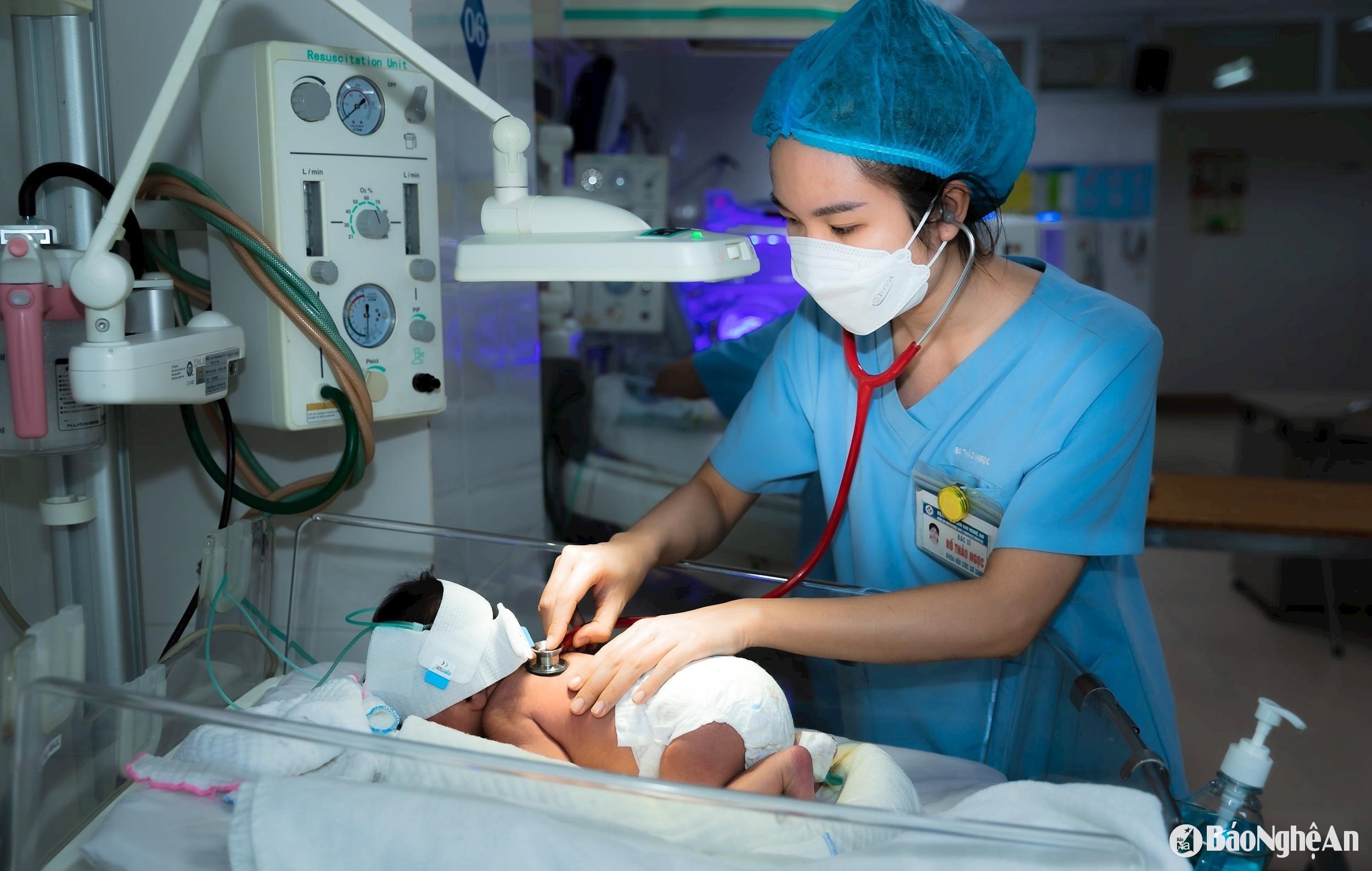
PV:So, in the new period, what development orientations will Nghe An Health sector focus on, comrade?
Dr. Le Thi Hoai Chung:Our Party and State have pointed out 7 orientations for implementation, which are: Improving the Party's leadership method; strengthening Party spirit in building and perfecting a socialist rule-of-law state of the people, by the people, for the people; streamlining the apparatus for effective and efficient operation; digital transformation; fighting waste; personnel work; economic development.
In order to contribute to the nation's rise together with other sectors, Nghe An's health sector in particular must simultaneously implement the above 7 orientations. However, the sector will focus on the orientation of applying information technology and digital transformation. We believe that this is the prerequisite for successfully implementing the remaining orientations. Because when promoting the application of information technology and digital transformation, a smart healthcare system will be built, which will promote and change all pillars of healthcare including administration, disease prevention, and medical examination and treatment.
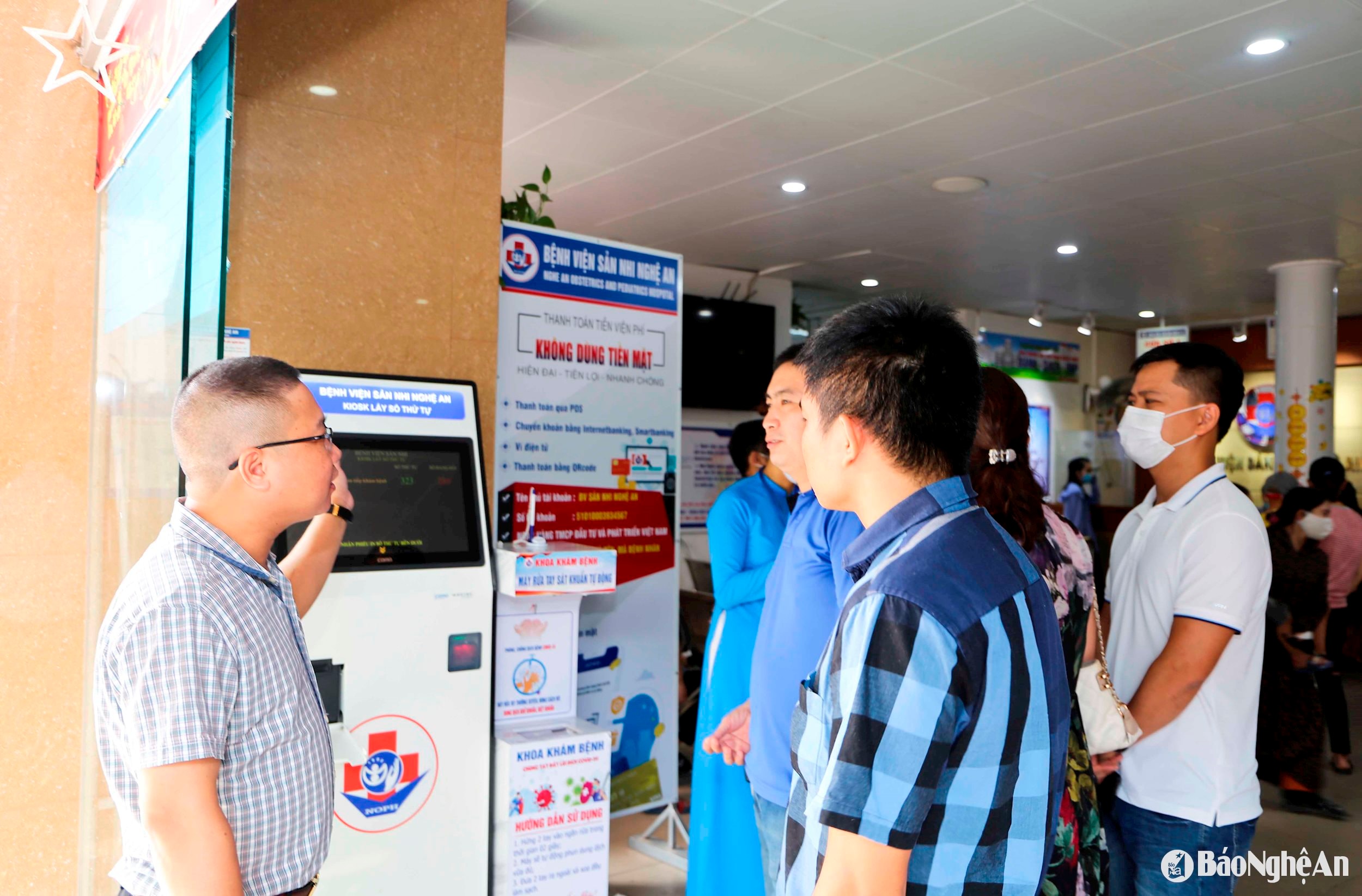
Specifically, with smart healthcare management and administration, financial transparency will be achieved, helping to save money and prevent waste.
Intelligence in the hospital will go into detail, each specific individual. For example, the electronic health book with smart software has the function of reminding people to come for health check-ups. In contrast, the management agency and medical examination and treatment unit will have the name, address, health information of the people, along with notes on diseases and health indicators that need to be monitored and focused on. Thereby, the management agency and medical examination and treatment unit can systematically collect and monitor people's health; early detect, prevent and effectively fight diseases in the community, as well as provide convenient and effective care and treatment thanks to the data of previous medical examinations and treatments that have been integrated into the electronic book.
As for medical examination and treatment, the application of information technology and digital transformation helps facilities to increase consultation with experts; connect with upper-level hospitals; use treatment robots; support people right from the hospital gate, reducing unnecessary waiting time. For example, with the increase of cameras in hospitals and wards, the number of patients' relatives coming to visit will be limited. Patients' relatives can clearly see images, vital signs, and the patient's illness level on the waiting room screens, through Apps.

Another key direction that the Nghe An Health sector focuses on implementing is streamlining the organization to operate effectively and efficiently. Specifically, the sector and units build job positions and resolutely implement them to eliminate the idea of "going to work with an umbrella in the morning and returning with an umbrella in the afternoon". In medical examination and treatment units, the sector directs the establishment of departments to develop expertise, but streamlines the rooms to prevent waste...
In addition, Nghe An Health sector also promotes the health economy more strongly by giving more autonomy to medical examination and treatment units. Thereby, units can be proactive in terms of human resources, proactively develop task plans, proactively develop financial plans, have solutions to encourage and motivate staff to work enthusiastically, contribute their talents, and increase income.

PV:Could you tell us, in the new context, what are the requirements for each medical staff member? What is the Nghe An Health Sector doing to urge and motivate the team to better meet the requirements of the task?
Dr. Le Thi Hoai Chung:At any time, the requirement for medical staff is to have professional ethics and professionalism. Specifically, medical staff must work according to the requirements of their job position, must fulfill their responsibilities to complete their tasks at the highest level, and enjoy their rights according to regulations.
To improve the professionalism of medical staff, in the coming time, Nghe An Health sector will continue to promote propaganda and political and ideological education to help medical staff properly perceive their duties, thereby taking the right actions; helping medical staff improve their self-esteem in performing their duties.mission.
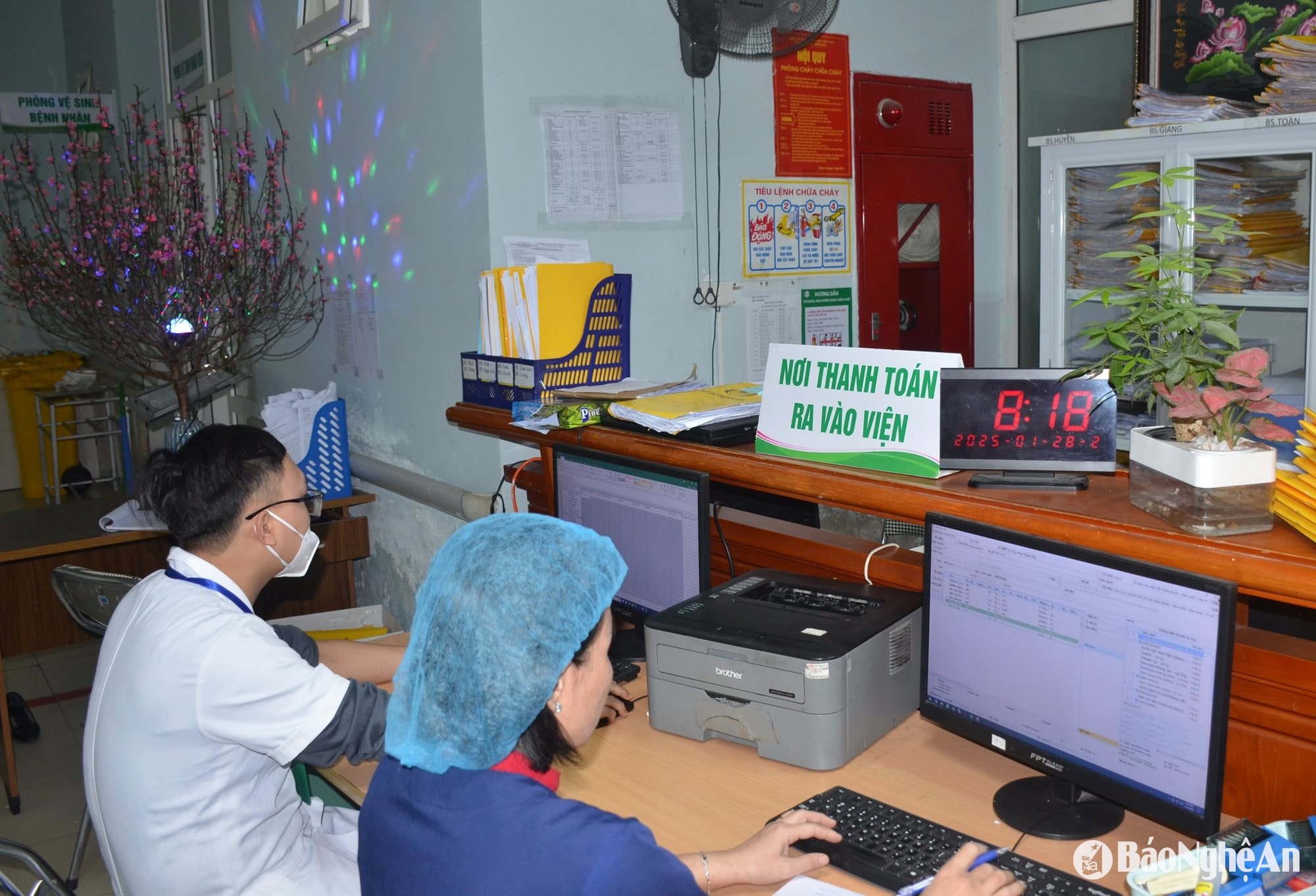
To encourage medical staff, the sector has been and will continue to recommend the Ministry of Health to propose the Government to consider and soon issue amendments and apply a system of salary scales and tables and incentive policies that are large enough to encourage medical staff; recommend the Ministry of Health to soon issue a new hospital price framework that is calculated correctly and sufficiently; recommend the Provincial People's Committee to allow the health sector not to implement the policy of streamlining the payroll of civil servants and public employees to ensure the minimum number of employees; recommend the Provincial People's Committee to submit to the Provincial People's Council a policy to support units in the autonomous work to ensure the best conditions for units in performing medical examination and treatment to serve people's health.
PV:Thank you, comrade!
